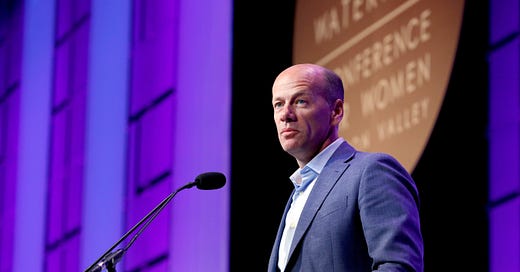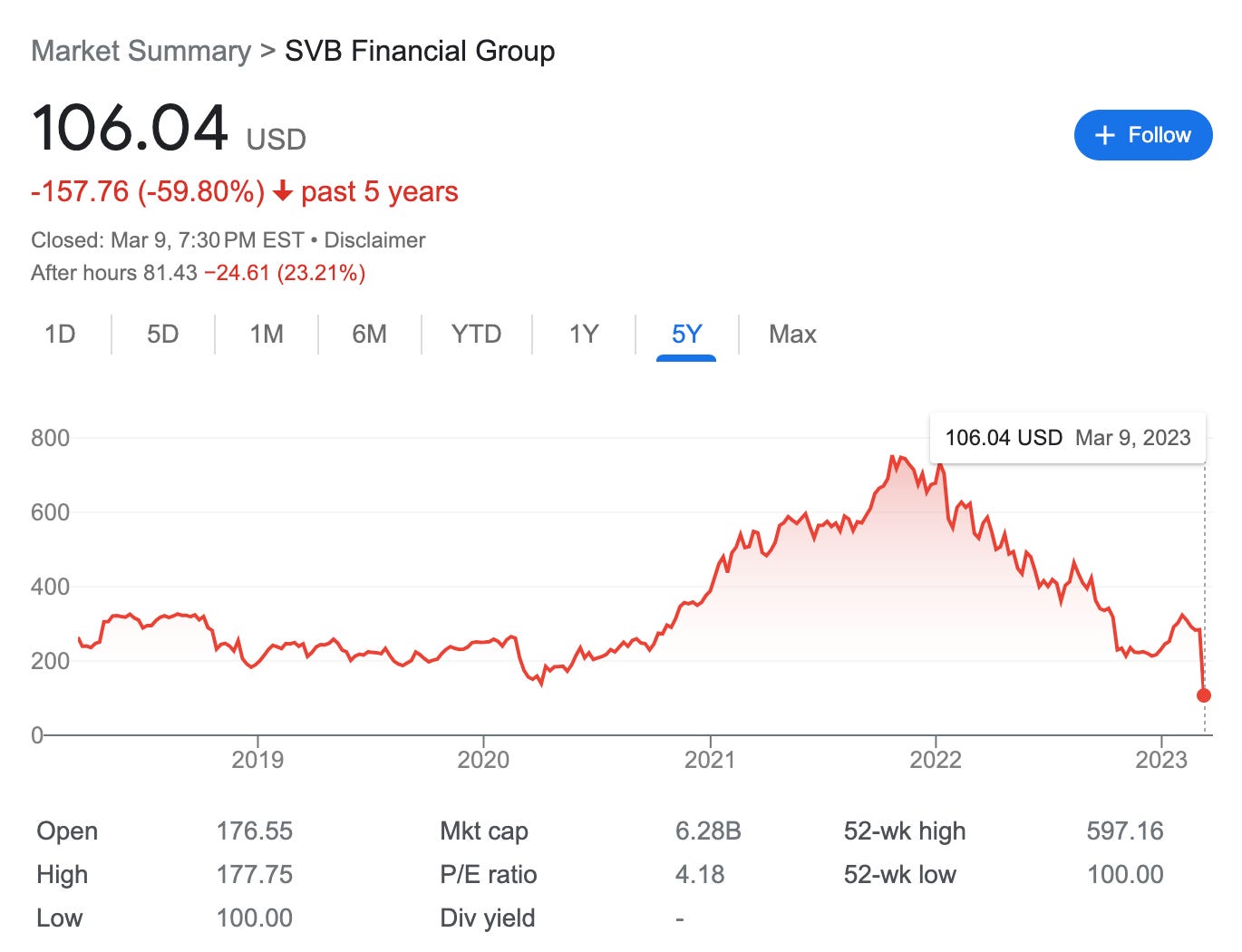Panic Erupts As Venture Capitalists Tell Startups to Abandon Silicon Valley Bank
Fears of a bank run at Silicon Valley Bank were rampant Thursday
If you must panic, panic early.
That’s the conventional wisdom ricocheting around Silicon Valley right now as technology institution Silicon Valley Bank looks precarious.
One founder at a venture capital event in San Francisco relayed that investors were fleeing to the edges of the room to call founders and warning them “not to be last in line at a bank run.”
Another founder texted, “Sounds like they are super fucked and will sell over the weekend.”
When I asked one powerful investor if he was worried, he texted back, “Yea. Run on bank always ends badly.”
It started off this week with a terribly timed announcement. Just as crypto bank Silvergate was shutting down operations, SVB Financial announced that it was selling assets at a loss and raising money from General Atlantic.
The news sent Silicon Valley Bank’s stock tumbling 60% in a day — and more after hours.
StrictlyVC’s Connie Loizos called Silicon Valley Bank’s handling of the situation an “own goal.”
Venture capitalists warned startups that they should shrink their Silicon Valley Bank accounts below the $250,000 limit that’s insured by FDIC.
The Information reported that Union Square Ventures had warned founders to limit their exposure to Silicon Valley Bank:
New York-based venture firm Union Square Ventures this week sent an email to founders advising them to “only keep minimal funds in cash accounts at SVB,” that is, funds of up to $250,000. “SVB is in a severe cash crisis,” the email read. “Do NOT accept any offers from SVB to keep your money there even if they dangle 5% interest rates in front of you,” it said. USV noted it had reached out to many of its portfolio companies earlier in the year saying it had expected such a situation. A representative for the firm declined to comment.
Meanwhile, Bloomberg reported that Founders Fund issued a similar warning to its portfolio companies.
Aaron Harris, a former YC partner who advises startups on raising funding, wrote in a founder forum (that he shared with me):
I’m not an expert on SVB’s balance sheet but I did get to watch the financial crisis up close and I’ve spent a long time thinking about fintech.
If I had an account at SVB I’d probably pull it and move it to JPM. I understand wanting to put your cash in a higher yield account or something else that is clever, but this doesn’t strike me as a good place to experiment.
High yield necessarily means that whatever underlying financial institution holds your cash is taking more risk. For your primary company account, look for low yield. Make your return by building products and getting customers.
One partner at an elite firm wrote me:
Our assessment is low risk on deposits. But if this fear cycle keeps spinning, there is always a certain threshold at which outflows can put them in an impossible position.
I think it’s highly likely the government would intervene in which case we are worst case talking about a few days of no access to funds.
The above said, many of our companies have moved their funds out or will pursuant to wires clearing tomorrow.
The Information reported on Silicon Valley Bank CEO Greg Becker’s call with venture capitalists that, rather than allaying concerns, only seemed to amplify them:
On a call, Becker said that “calls started coming and started panic.” He added that the bank has “ample liquidity to support our clients with one exception: If everyone is telling each other SVB is in trouble, that would be a challenge.”
“I would ask everyone to stay calm and to support us just like we supported you during the challenging times,” he said.
Venture capitalists seemed torn between their loyalty to Silicon Valley Bank and their desire to move quickly to protect their portfolio companies. Several venture capitalists tweeted out their support for SVB, long a Silicon Valley institution.



Personally, I’m reluctant to help create a self-fulfilling prophecy here. Fears of a bank run only further fuel the risk of a real one.







